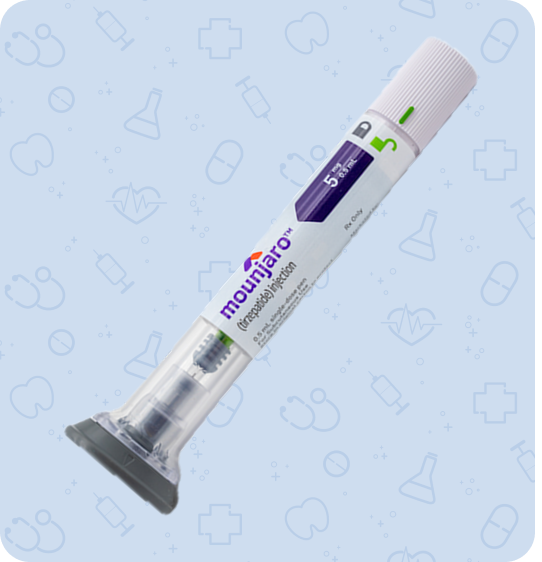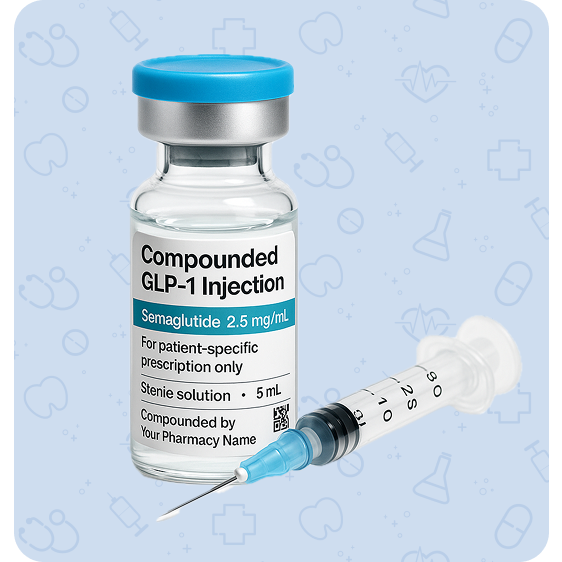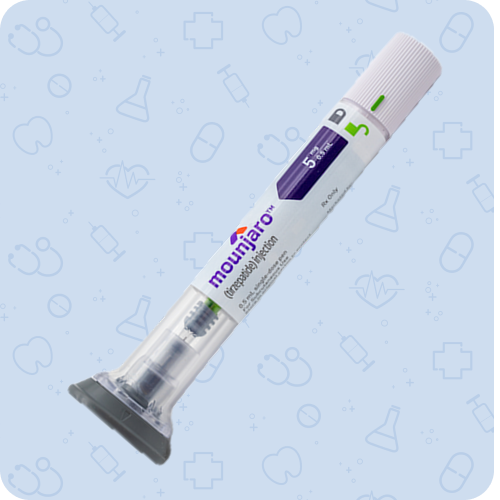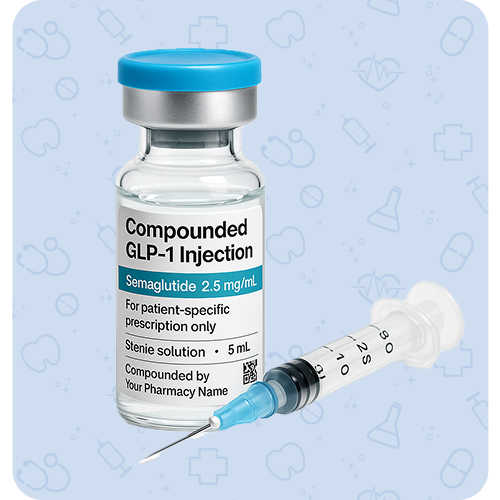




Once‑weekly injection

Dual‑hormone; once‑weekly injection

Not FDA‑approved

GLP-1 receptor agonists mimic the gut hormone GLP-1, improving insulin secretion and slowing gastric emptying—effects that also reduce appetite and caloric intake. After years as type 2 diabetes drugs, they were studied and then authorized for chronic weight management in people with obesity or overweight plus a comorbidity. The first GLP-1 approved specifically for chronic weight management was liraglutide 3 mg (Saxenda) in Dec 2014. Source
Saxenda® (liraglutide 3 mg) — adult chronic weight management approved Dec 2014; adolescent indication (ages ≥12) added Dec 2020.
Wegovy® (semaglutide 2.4 mg) — adult chronic weight management approved June 2021; adolescent indication added Dec 2022; in Mar 2024, FDA added a landmark cardiovascular-risk-reduction indication for certain adults with overweight/obesity and established CVD.
Zepbound™ (tirzepatide) — approved Nov 8, 2023 for chronic weight management in adults; it activates GIP + GLP-1 receptors.
Wegovy (semaglutide 2.4 mg) is the obesity-dose version; Ozempic is semaglutide dosed for diabetes. Zepbound is tirzepatide for obesity; Mounjaro is tirzepatide for diabetes. (Same molecules, different brand names and labeled indications.) Zepbound is notable as a dual GIP/GLP-1 agonist.
Yes—in March 2024, the FDA approved Wegovy to reduce risk of major cardiovascular events (CV death, MI, stroke) in adults with CVD and overweight/obesity—the first weight-management drug with this claim, supported by the SELECT trial.
The FDA has cleared Saxenda (2020) and Wegovy (2022) for adolescents aged ≥12 with obesity.
The FDA has warned companies selling unapproved semaglutide/tirzepatide products marketed for human use. Stick to FDA-approved products and legitimate pharmacies.
Oct 2024:
FDA determined the tirzepatide shortage resolved, with short grace periods for compounders.
Feb 2025:
FDA determined the semaglutide shortage resolved and set grace periods to prevent treatment disruption.
April–May 2025:
Grace periods ended (503A pharmacies/physicians by April 22, 2025; 503B outsourcing facilities by May 22, 2025). After these dates, routine compounding of “essentially copies” of approved semaglutide/tirzepatide is no longer permitted.
Sept 2025:
FDA launched a “Green List” import alert to block illegal/poor‑quality GLP‑1 APIs from unverified foreign sources while allowing compliant API manufacturers.
Compounded GLP‑1s may only be prepared under narrow conditions (e.g., a specific medical need not met by an approved product).
Bulk API from unverified foreign suppliers can be detained at the border; products labeled “research use only/not for human use” are not appropriate for patients.

Using salt forms (e.g., semaglutide sodium/acetate) is not equivalent to approved drugs and should not be used for compounding.